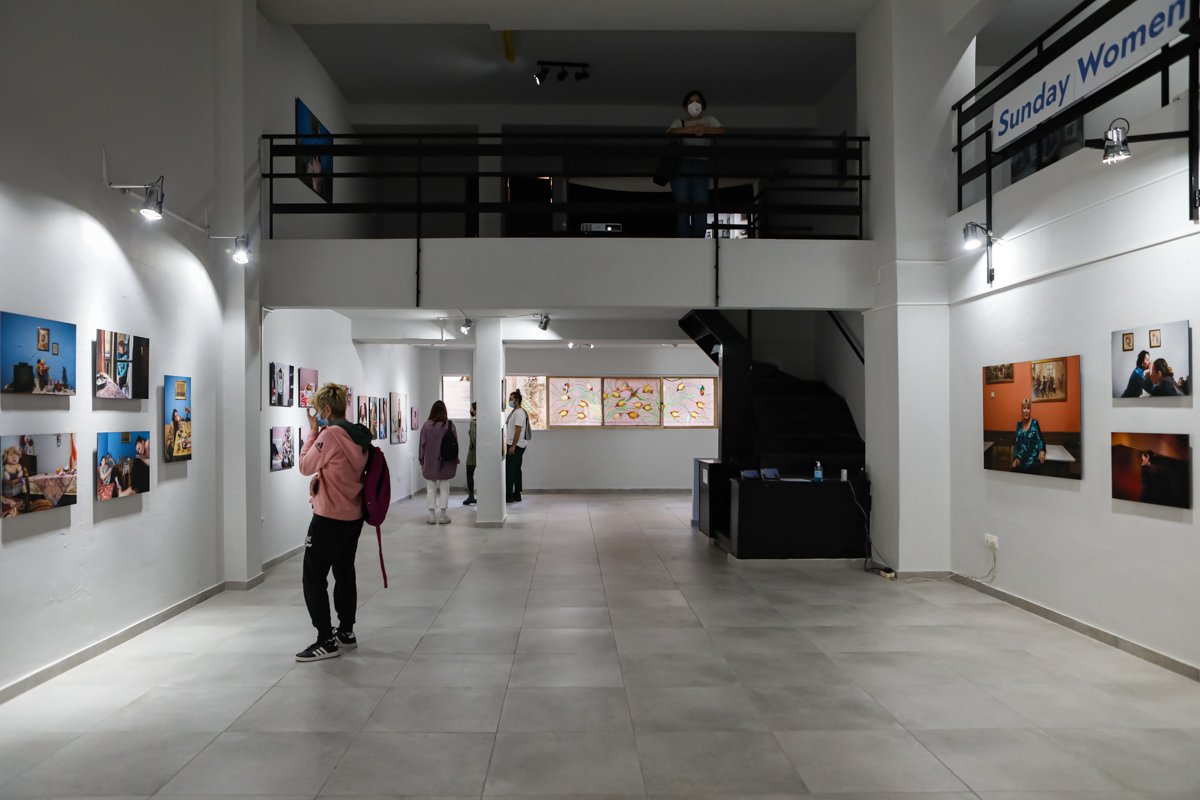
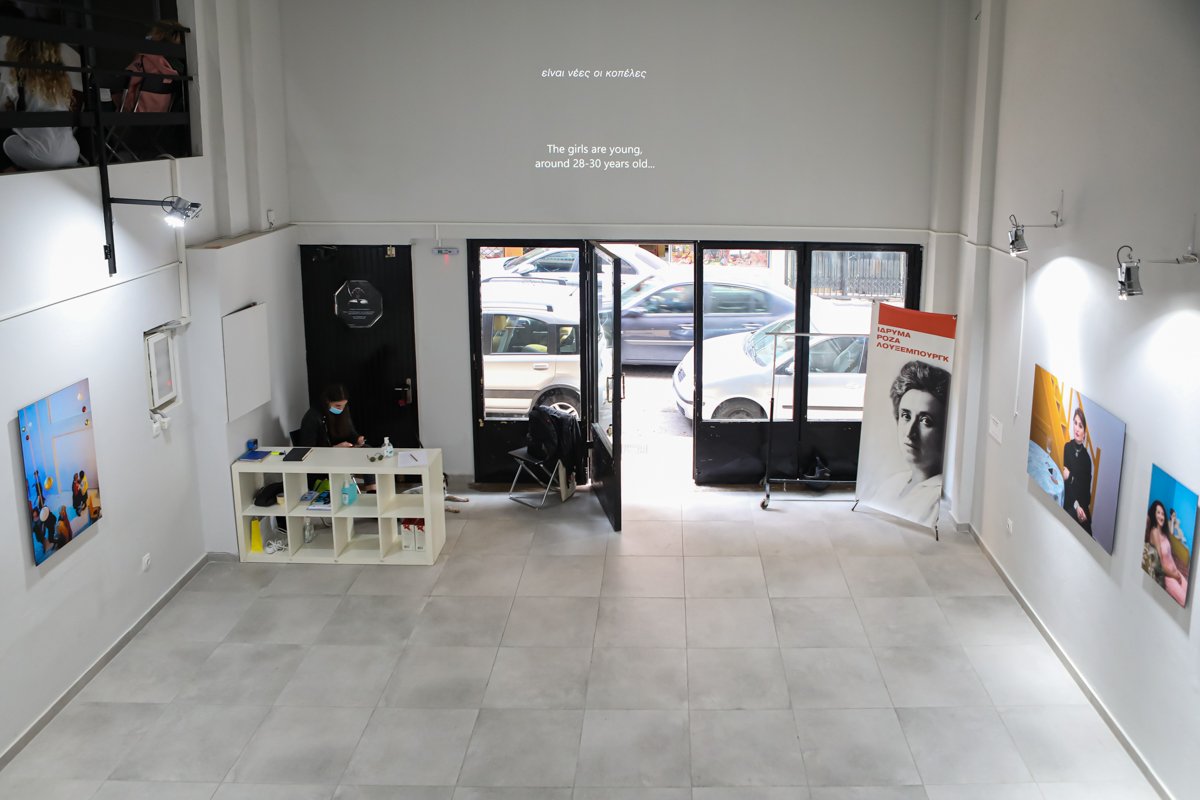
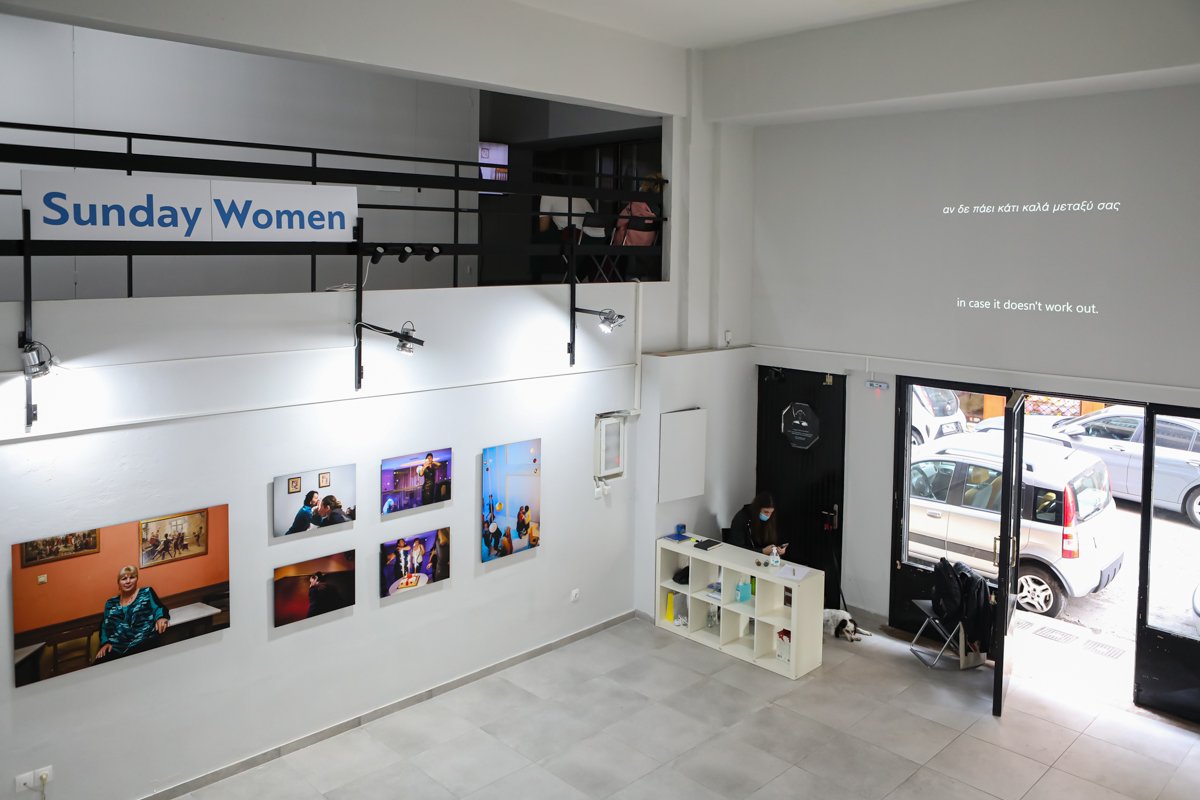
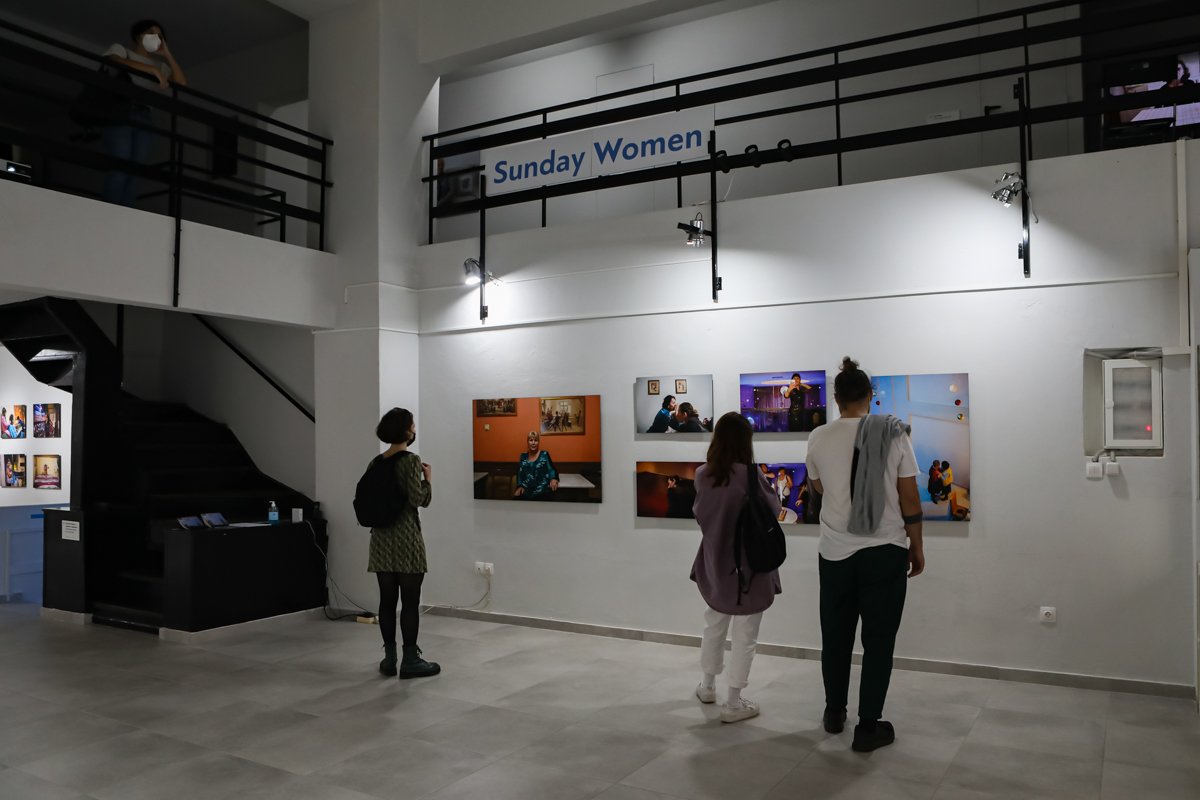
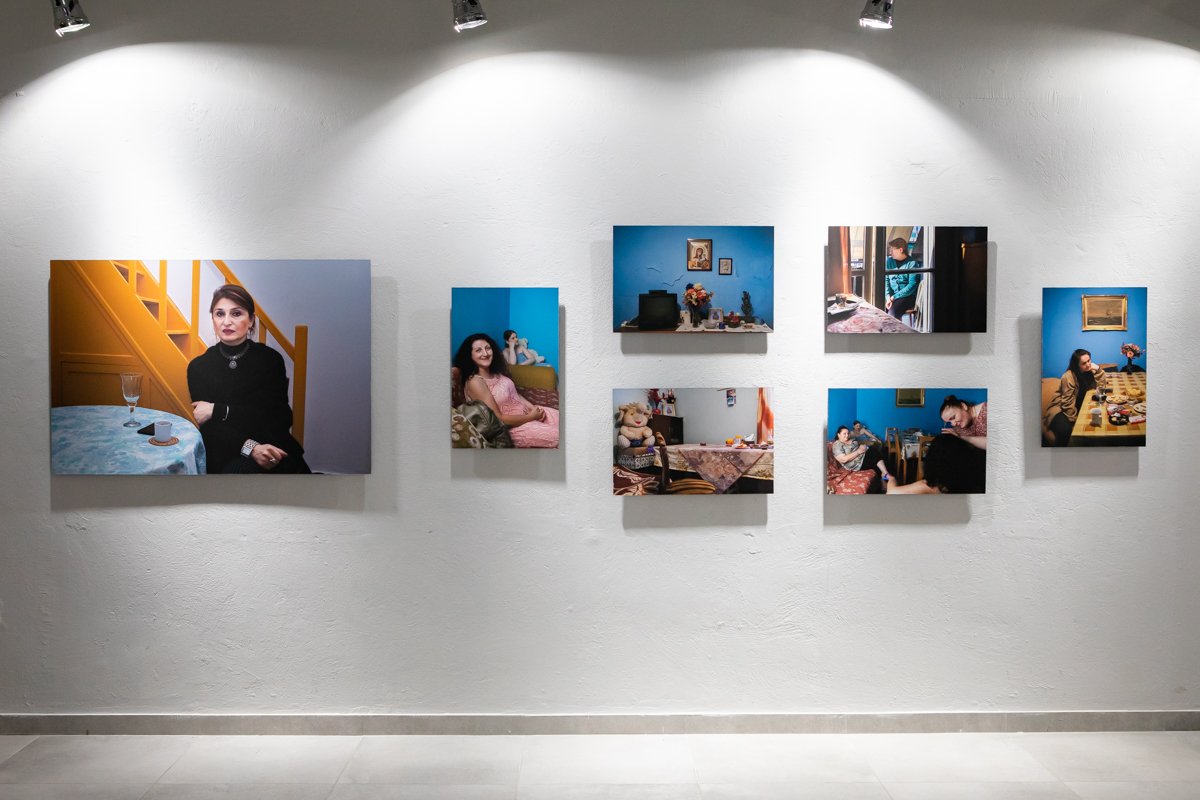
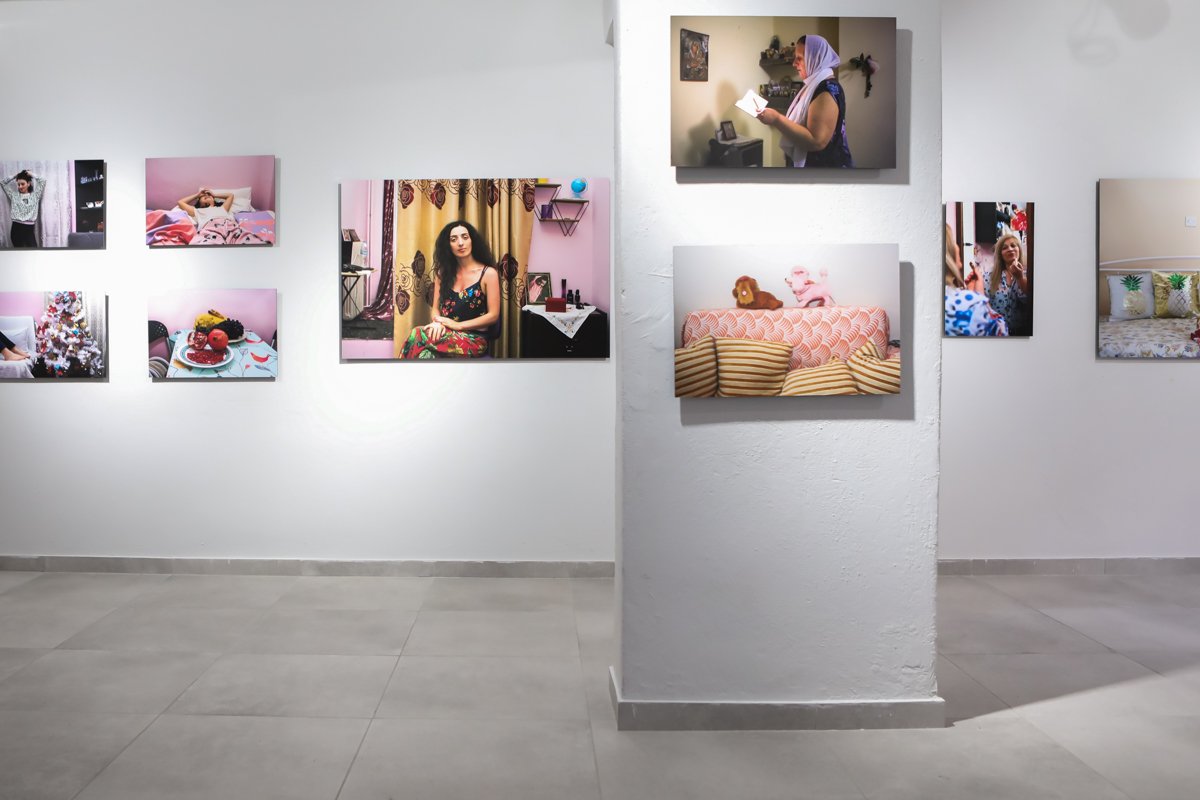
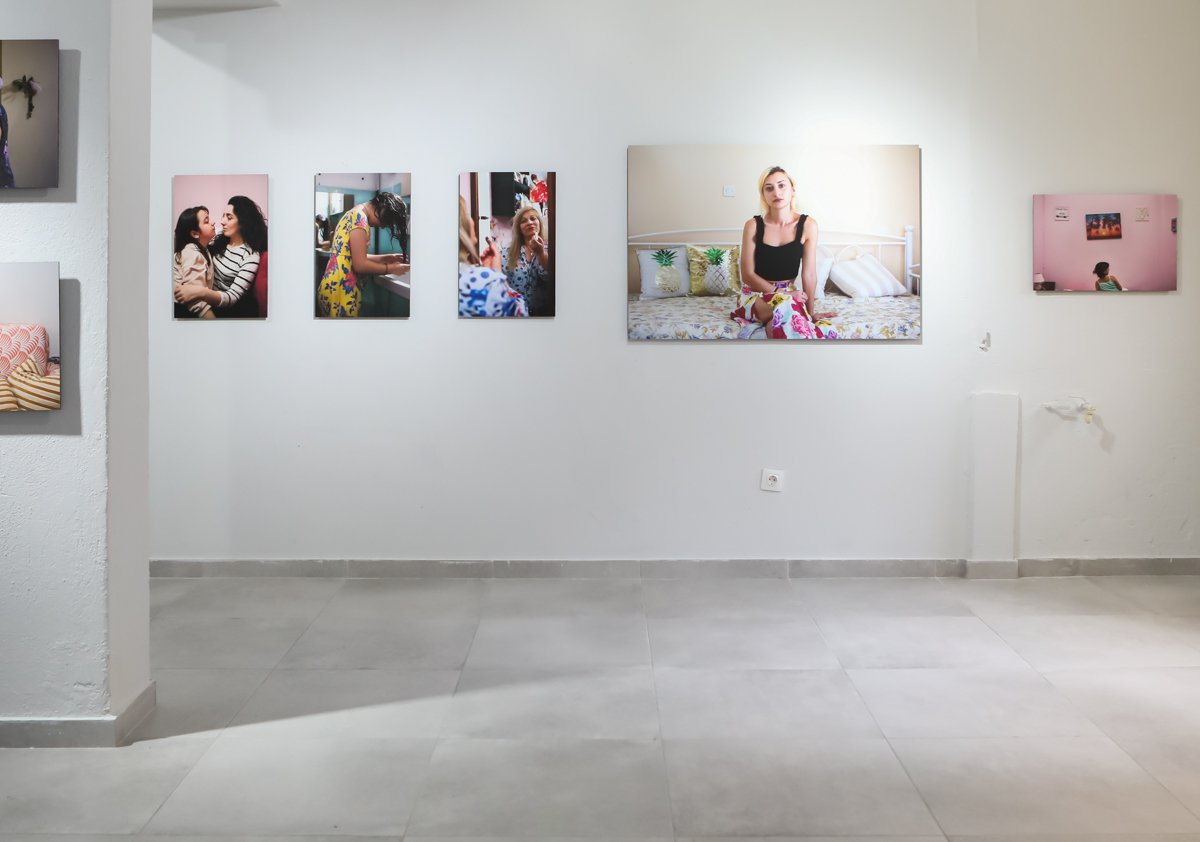
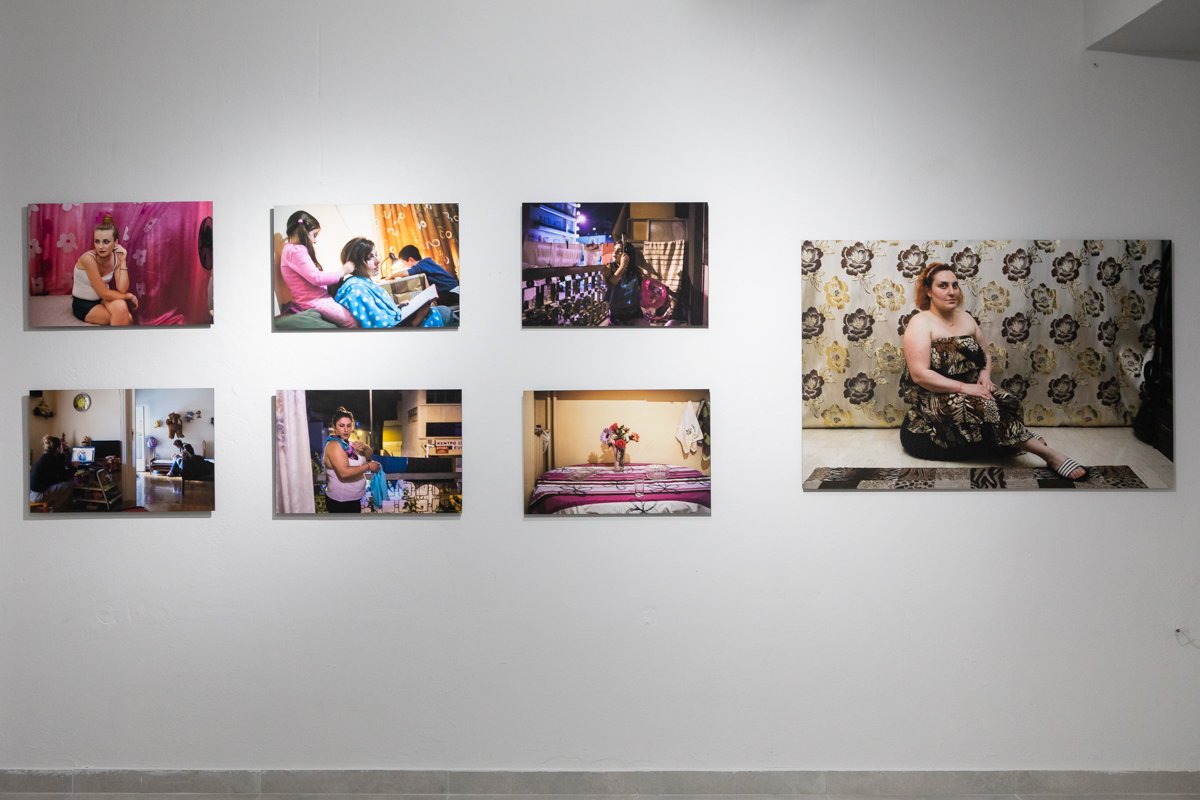
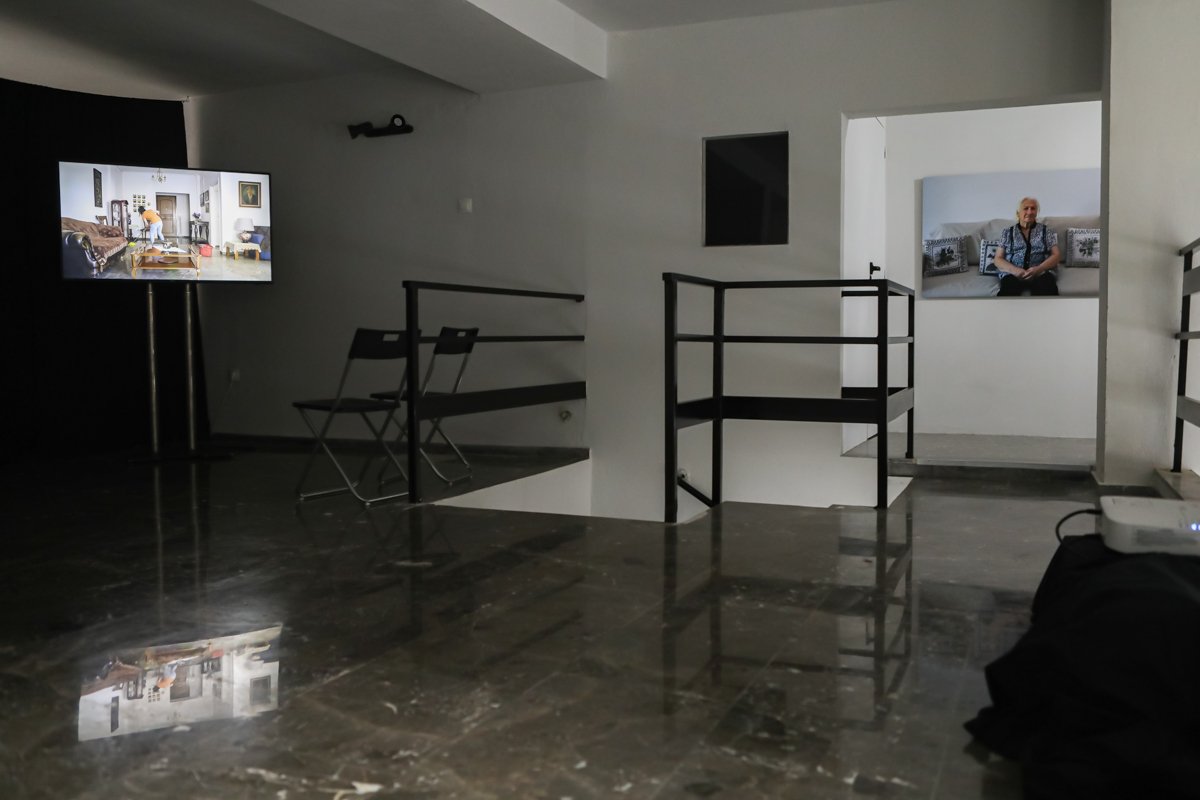
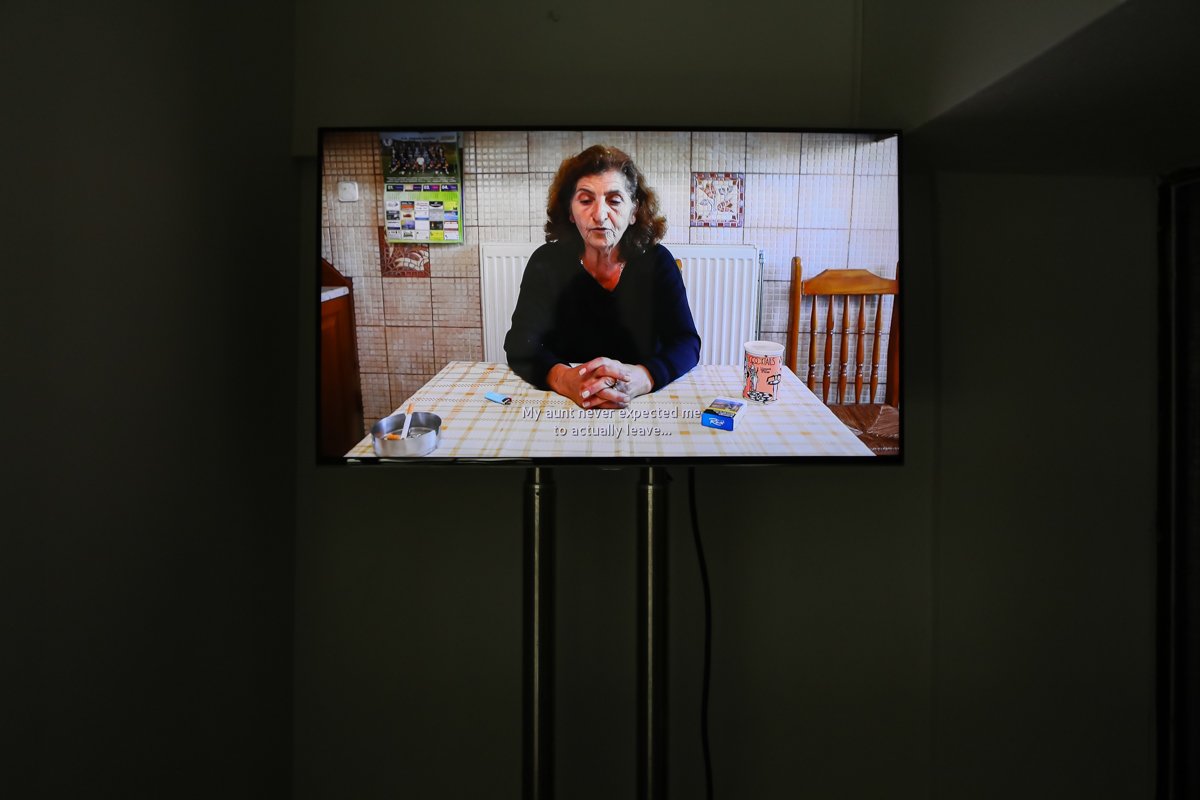
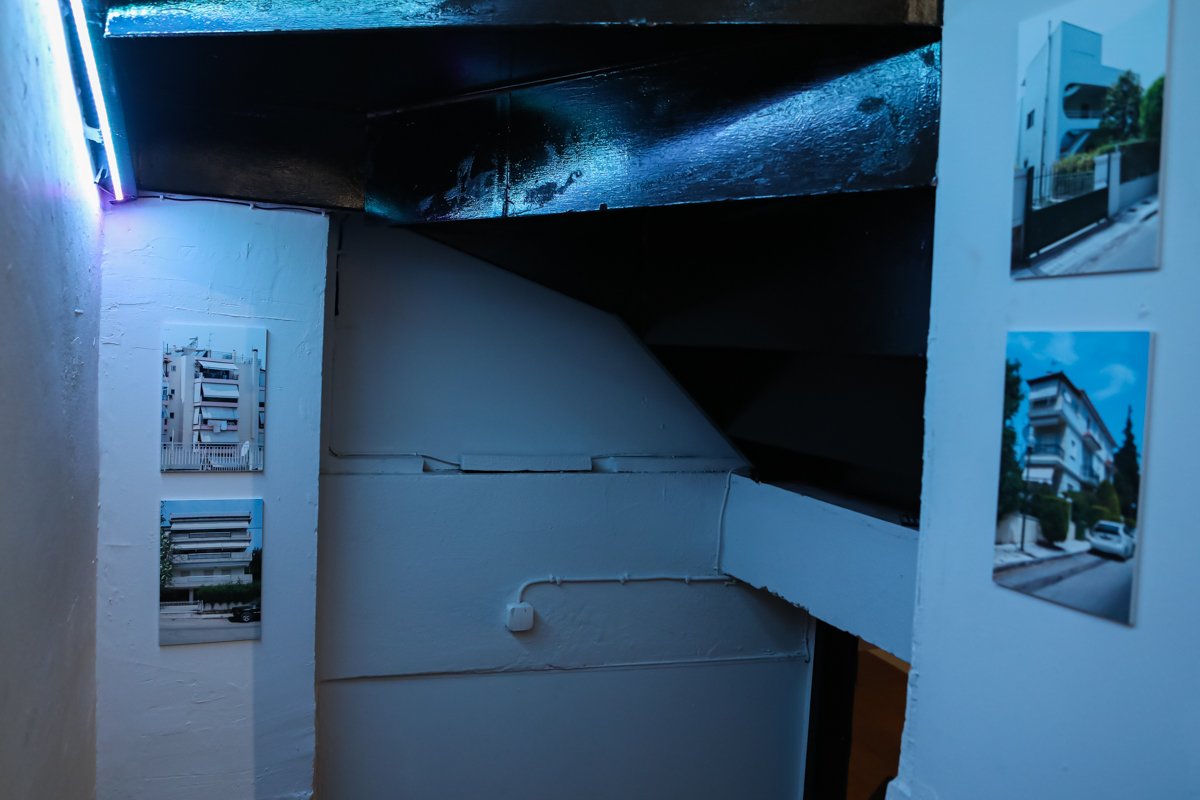
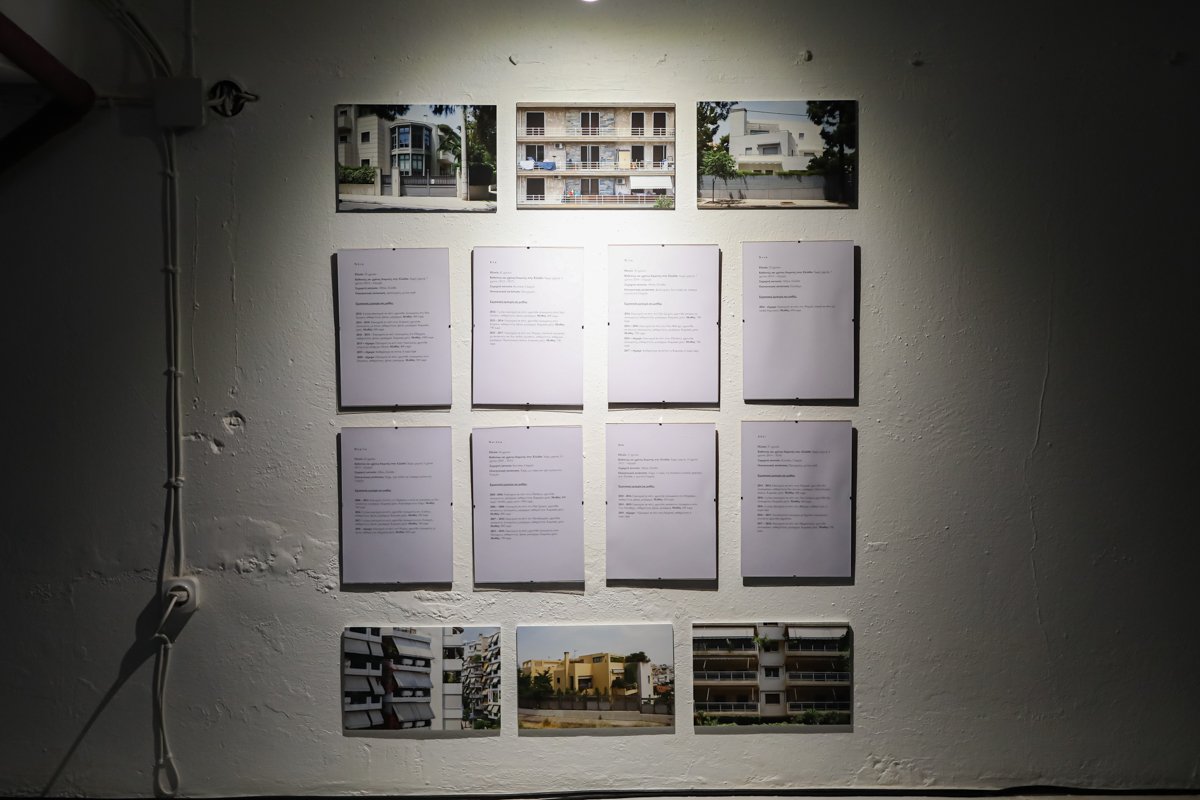
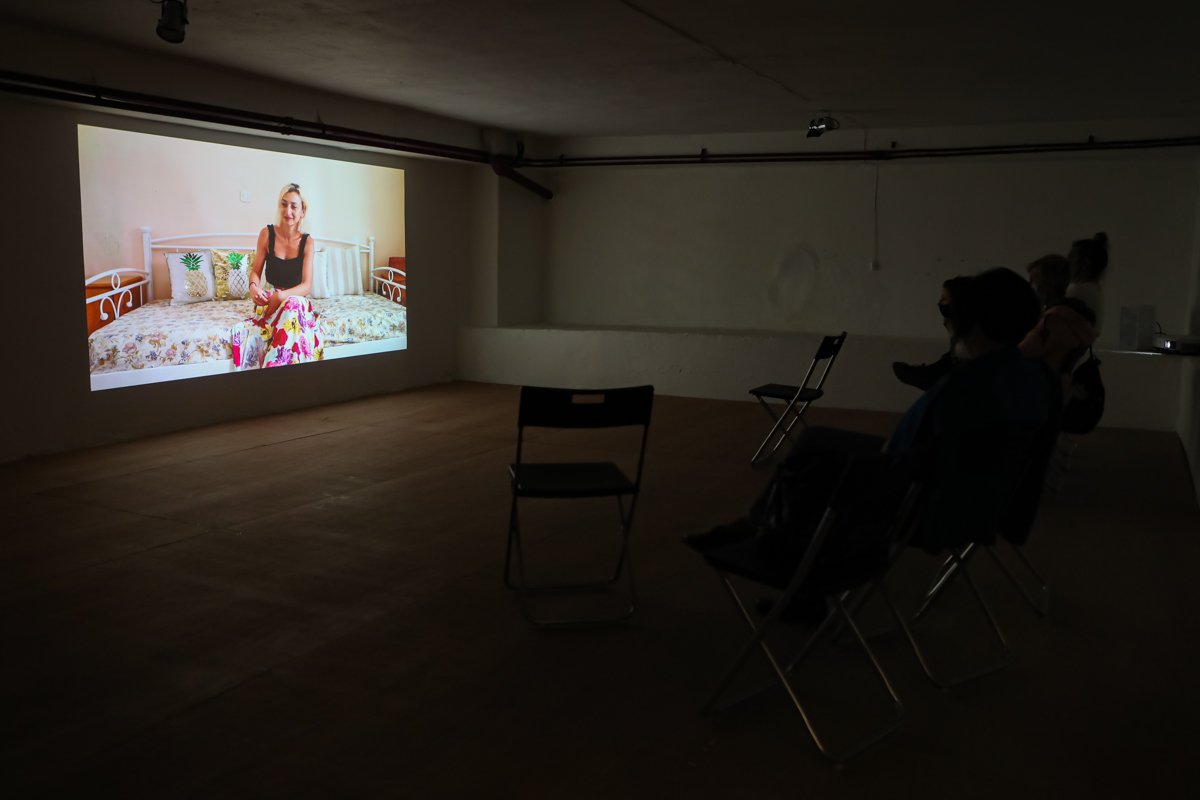
Sunday Women - Stories of Georgian domestic workers in Athens is an exhibition that explores the lives of Georgian women living in Athens in the context of their role as domestic workers in households across the city.
The exhibition begins with a photographic exploration of the Georgian community’s domestic life, as it unfolds in the space of their own homes: individually or collectively rented spaces where they meet on their days off from working in Greek households.
Their stories describe the working conditions they are faced with, the experience of working as live-in domestic workers and the networks of support developed within the community in order to cope with an everyday life spent at the service of others.
The project is a collaboration between Tatiana Mavromati & Laura Maragoudaki. With the support of Roza Luxemburg Foundation in Greece.
The exhibition took place at Kamiros (Ithakis 32 in Athens city center) between 22/10/2021-4/11/2021.
Texts by art critic Angela Dimitrikaki: Whose Visibility? Labour Divides, Care Politics, and Strategies of Solidarity in the Art Field
Text by art critic Faye Tzanetoulakou: Οι “άλλες” ηρωίδες της διπλανής πόρτας
Text by art critic Despina Zefkili: Αναδρομή στα εικαστικά του 2021: Όλες οι εκθέσεις που κρατάμε από τη χρονιά που μας πέρασε
You can see the Exhibition Guide in greek and in english (scroll down):
HOUSE: An apartment, a maisonette, a villa with a pool. A web of small and large houses that make up the fabric of the Greek metropolis, the small town, Greek society as a whole.
HOMEMAKING: Cooking, mopping, ironing. Babysitting, taking care of the elderly. The exhausting routine of caring for the home and the people who live in it.
WOMAN’S WORK: Invisible and undervalued yet central to the Greek home. Repetitive, monotonous, strenuous labor. Labor that has been constructed as women’s ‘natural’ role in the family. In the last few decades the underpaid labor of immigrant women has come to add to (and to a great extent replace) the invisible labor of mothers, grandmothers, aunts and the sisters in Greek households.
THE “GEORGIAN”: A synonym to a house-cleaner, babysitter, or caregiver for the elderly: the woman who looks after the old, the sick, the bedridden. She has worked for 20 or 30 years in Greek households, without legal documents, social security, pension or social recognition of her work. For a migrant woman in Greece to be legalized, she has to embark—at her own risk—on a expensive journey filled with bureaucratic hurdles and unattainable legal services. Justifiably, whoever attempts to undergo this process feels like the system is designed to perpetuate their illegal status.
COMMUNITY: Even though there are no official figures, the Georgian community is considered one of the biggest migrant communities in Greece, and it is mostly a female community. Women of various ages, who have come to Greece to work in Greek households as domestic help. Women who left their own life, children and loved ones behind, and now serve the everyday needs of Greek families.
THE “LIVE-IN”: Live-in domestic work is very common. A live-in domestic worker works 24 hours, 6 days a week in the house of her employer, with only one day off, usually on a Sunday. She gives 24-hours care to the sick and elderly, or works as an in-house maid for wealthier families. Younger women try to avoid working as a live-in. They rent an apartment and try to balance between family and personal life and the intense work schedule involving two or more jobs as live-out domestic workers.
The exhibits:
01 - Little Georgia (Photographs by Tatiana Mavromati)
The photographs of the exhibition focus on the life of the Georgian community, as it unfolds in the space of their own houses: single mothers who work as carers, cleaners, women who work as live-in carers or maids and visit relatives and friends on their Sunday day off, women who have just arrived in Greece or have been left without a job and are temporary. The houses of these Georgian women become the center of a greater migrant network of support and empowerment. The domestic space becomes a collective one especially in cases where multiple women who work as live-ins rent an apartment together. Usually this apartment comes alive on Sundays—the day to rest. It is also a safe place during periods of unemployment. The Georgian restaurants are also centers for meeting and relaxation, the only public space that is presented in this photography exhibition.
02 - Employment Agency, how can I help? (audio)
Since the 1990s, an informal industry of care services has developed in Greece, relying heavily on the work of thousands of migrants from former USSR countries and the Balkans. Households that in the past would not have been able to hire a domestic worker were suddenly able to do so. Having a house help became widespread. The demand for these services was huge, as was the importance of these services for the Greek family to operate on a daily basis. Employment agencies sprung up in the center of Athens to supply Greek homes with cheap domestic support services by undocumented and underpaid female migrant workers.
03 - LIVE-IN (excerpt from the short film “Live-in”, 2022/ Direction: Laura Maragoudaki and Tatiana Mavromati)
Working as a live-in requires that one's everyday existence is limited to serving others, as the money that is saved is sent home as a remittance. The work itself is monotonous and repetitive, intense and circular. Personal moments are few and “stolen”, on the sideline of the employer's family life. A sense of confinement that cannot be escaped:
“You forget what day it is. Is it Tuesday? Monday?” Each hour is compared to Sunday. The day off.
04 - IN THEIR OWN WORDS (video by Laura Maragoudaki and Tatiana Mavromati)
Inga, Teona, Anna, Manana and Tsiouri are five different women with common stories. Most of them are from the area of Imereti, the capital of which is Koutaisi, the main source of domestic workers in Georgia. The absence of women is felt in Imereti. The women who are of older age left their country as a last resort, due to the economic crisis that the dissolution of the Soviet Union brought, an event that condensed historical time and changed the lives of millions of people once and for all. Even the young women of more recent generations have followed the footsteps of their relatives and have migrated to European countries as house workers. Family relations are preserved through remittances, Skype calls and social media.
In Greece, their options are equally limited, as most of them don’t have papers and live and work under the fear of arrest and deportation. They support each other in finding work by word of mouth, bypassing the employment agencies which usually exploit their labor, or when they need to leave jobs where the exploitation and abuse are unbearable. In these cases, the existence of the community is crucial.
On Sundays, the areas around Omonia and Agiou Kostantinou by the presence of the Georgian community. The cafes, shops, money transfer businesses, churches, hair salons, nail salons, and restaurants are popular meeting points for Georgian women. These spaces bring women together, and provide opportunities for socializing, relaxing and exchanging useful information.
05- THE CHILD SERVANT (video by Laura Maragoudaki and Tatiana Mavromati)
The stories of these Georgian women describe the isolation involved in house work, the racism they are exposed to, the disciplinary power exercised by their employers and the absence of a personal life, a life lived at the service of others. Their stories remind us of the institution of the “psichokori”, a tradition of the recent past, which involved young under-aged girls being brought from rural areas of Greece to work as unpaid house servants in wealthier households. The tradition was a form of unpaid domestic work, one might even say a form of slavery.